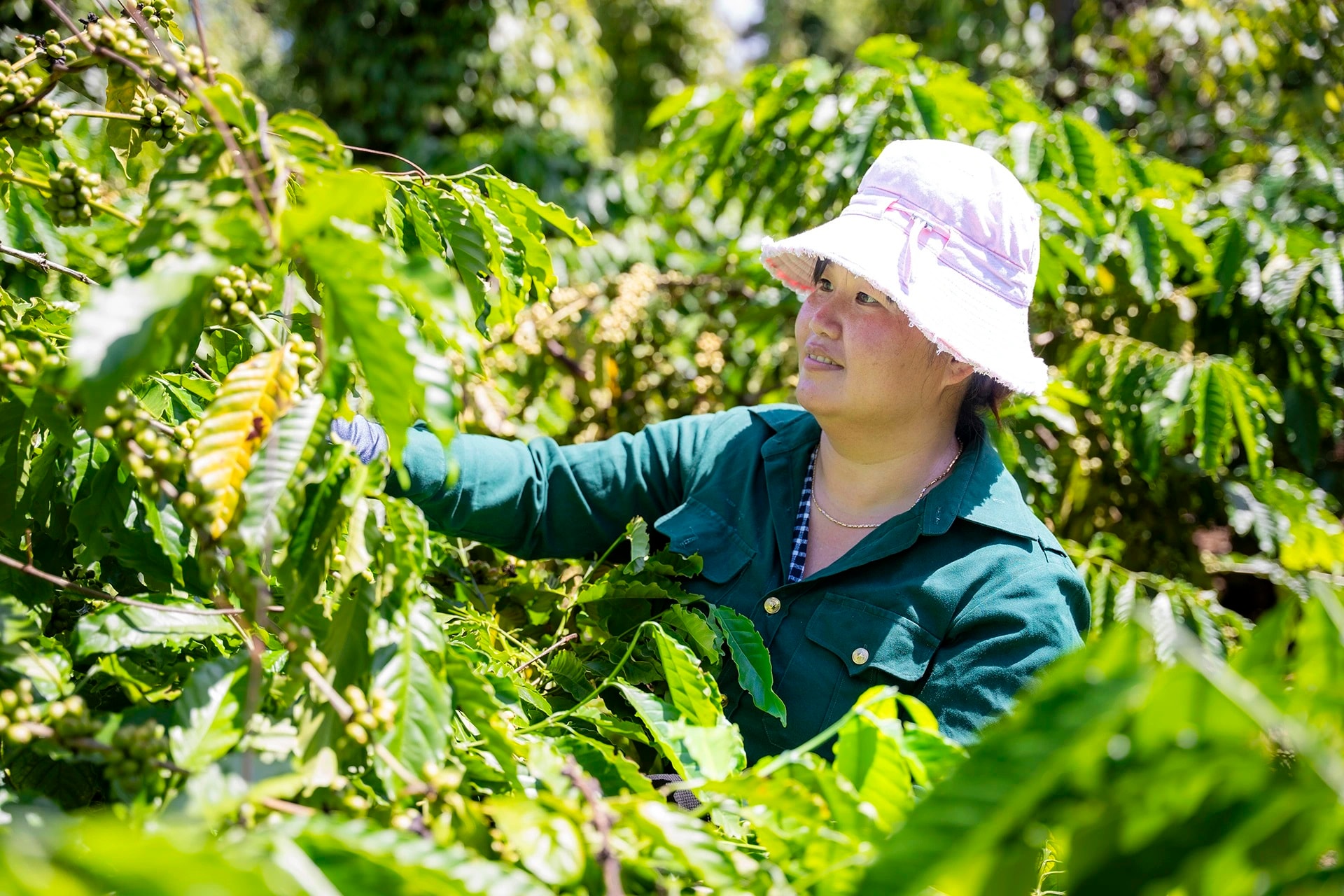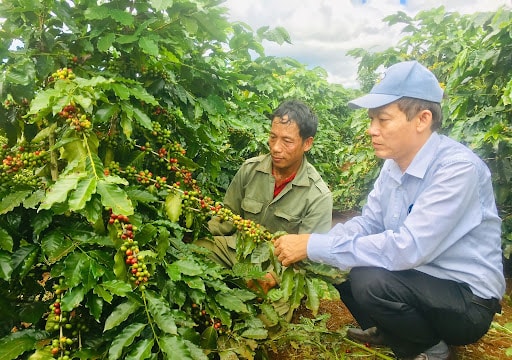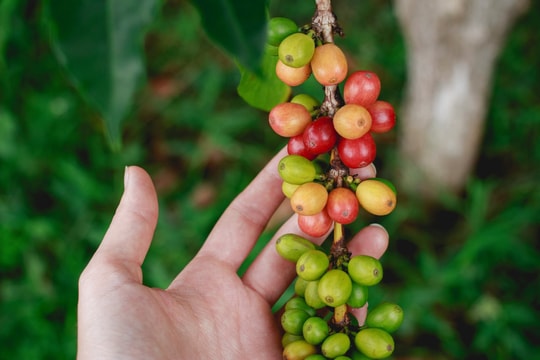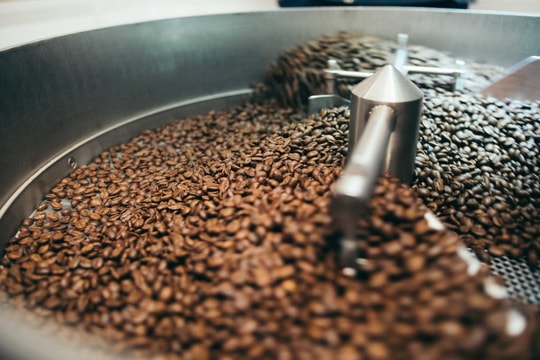Coffee prices today March 26, 2025: Slight decrease across the board
Today, March 26, domestic coffee prices are at 132,800 - 133,700 VND/kg. Coffee prices have slightly decreased by 100 to 200 VND/kg compared to yesterday. In the US, concerns about tax policies are also affecting the coffee market.
Domestic coffee prices today
Domestic coffee prices today, March 26, 2025, in the Central Highlands region slightly decreased compared to yesterday, fluctuating between 132,800 - 133,700 VND/kg.
Accordingly, traders in Dak Nong province are purchasing coffee at the highest price of 133,800 VND/kg. A slight decrease of 200 VND/kg compared to yesterday.
Coffee price in Dak Lak province is 133,700 VND/kg, down slightly 100 VND/kg compared to yesterday.
Similarly, coffee prices in Gia Lai province decreased by VND100/kg and were traded at VND133,700/kg.
In Lam Dong province, coffee prices decreased by VND100/kg and reached VND132,800/kg.

In Vietnam, the weather situation is causing concern for the upcoming coffee crop. It is forecasted that from March 21 to 31, the Central Highlands will experience intense heat and low rainfall, directly affecting output.
The dry season has just begun but many lakes in the Central Highlands have dried up, leaving hundreds of hectares of crops without irrigation water. Coffee and pepper are starting to turn yellow, the soil is cracked, and the prolonged drought has left farmers waiting for the first rains of the season.
These harsh conditions could cause a sharp drop in Robusta coffee production, and are an important factor in keeping Robusta prices high in the coming time.
World coffee prices today
Coffee prices on the world market also fluctuate:
Robusta Coffee (London):
Delivery in May 2025: Up 88 USD/ton, to 5,587 USD/ton.
July 2025 delivery: Up 79 USD/ton, to 5,571 USD/ton.
Arabica Coffee (New York):
May 2025 delivery: Up 4.4 cents/lb, to 397.8 cents/lb.
July 2025 delivery: Up 4.6 cents/lb, to 392 cents/lb.
Arabica prices continued to rise due to concerns that severe weather in Brazil could affect production. Besides the weather factor, the demand for high-quality coffee in major markets remained stable, which is the driving force to keep Arabica prices high.
Some traders are taking profits from Robusta and shifting capital to Arabica. However, if the new crop in Brazil is good, Arabica prices may cool down. Meanwhile, Robusta coffee is still supported by strong consumption demand in Asian countries.
Experts predict that both types of coffee will remain at high prices due to reduced inventories at trading floors and continued unpredictable weather.
In North America, concerns about tariffs are also affecting the coffee market. Although the United States has not imposed tariffs on coffee imported from the Americas, many businesses have taken precautionary measures. Coffee companies in Mexico are shifting production to the United States and Canada to avoid being affected by any future tariff changes.
Starbucks CEO Brian Niccol said that if a 25% tariff is imposed, they will have to adjust quickly. Bill Murray, president of the National Coffee Association of the United States, warned that if tariffs were increased on coffee from Brazil and other North American countries, American consumers would be the ones to suffer, as three-quarters of the population consumes coffee daily.





